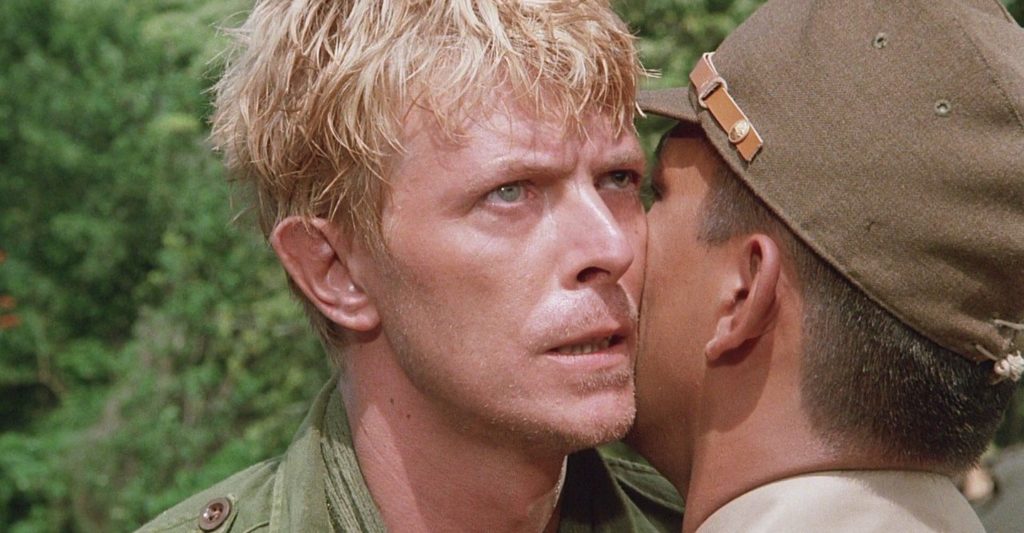
Guilt and regret are two emotions that I have personally always found overwhelming, primarily because they are responsible for so much of my character. It is those two emotions that are at the heart of Merry Christmas Mr. Lawrence. Merry Christmas Mr. Lawrence uses these two emotional experiences to explore the nature of war; the way war distorts and perverts the mind and the soul, how violent conditions can propel, strengthen and shatter human beings. Merry Christmas Mr. Lawrence is by no means a violent film. It often comes off as placid till an eruption occurs.
Nagisa Oshima is, in my mind, one of the most important filmmakers of the second half of the twentieth century, at least equal to Godard. And given the stylization of so many of his films it is always surprising to me how fragile Merry Christmas Mr. Lawrence feels. Oshima’s delicately lit close-ups, his slow panoramas through the prison compound, the gentility of movement in his tracking shots all work in coordination to convey an existence that is hardly truly there, always on the brink of collapsing.
As if to accentuate Oshima’s visual dialect in Merry Christmas Mr. Lawrence, David Bowie was cast as Major Jack Celliers, the primary point of contention between the British POWs and their Japanese captors. As with Roeg’s The Man Who Fell To Earth, Bowie utilizes his inherent alien qualities to create a distance between himself and his fellow characters in the film. Though in this instance that “outsider” quality is not indicative of a literal other-worldliness, but rather of a character so bereaved with guilt that he simply cannot emote as other people do.
The greatest strength of Merry Christmas Mr. Lawrence is that it never addresses these concepts head-on. The film is ambiguous. It conveys all of these emotions with the faintest clues as to their cause and effect.
